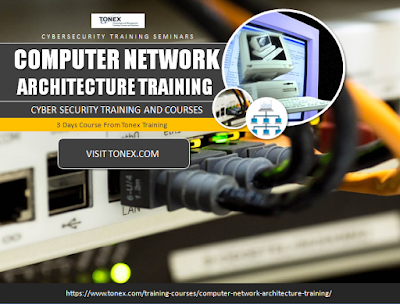Computer network architecture training assists you learn principles of computer networking, internet architecture, internet protocols, wireless networks and next generation networking.
Computer network architecture training course enables you to understand a variety of topics in network security such as: computer networks, Ethernet, LAN, packets, IPv4, IPv6, UDP, TCP, Network security standards, and OSI model. Moreover, learn about network layer routing, application layers, transported layers, and network layers as the main layers included in network architecture.
Learn About:
The basics of Ethernet and LAN, different Ethernet speeds, spanning tree algorithm, virtual LAN (VLAN), virtual private networks (VPN) and commonly used Wi-Fi which prepares you for technical details of network architecture.
The IPv4 and IPv6, the difference between them, importance of mobile IP, headers and subnets for IPv4 and IPv6.
The OSI reference model including its seven layers which is the most important topic in network architecture. Furthermore, the main layers of OSI reference model will be described in detail. For example, network layer routing, application layers, transport layer, network layer, and data link layers are covered in this training.
Training Objectives:
Understand the basic ideas and philosophy behind the network architecture
Get a clear idea of important protocols in TCP,IP networks
Understand the architecture for mobility, multicast and routing
Explain the virtual private networks, resource allocation and congestion control in network architecture
Identify and analyze strengths and weaknesses of various network layers
Identify alternative solutions in network architecture
Manage small networks including different architectures
Conduct the performance measurements and traffic analysis of internet architecture
Training Outline:
The computer network architecture training course comprises of the following lessons:
Introduction to Computer Networks
Basic Terminologies in Network Architecture
Ethernet and LAN
Packets
Ipv4 and Ipv6
UDP and TCP
Computer Network Security Standards
OSI Reference Model
Network Layer Routing
Application Layers
Transport Layer Network Architecture
Network Layer in Network Architecture
Data Link Layer
Wireless and Mobile Networks
Computer Network Security
Hands On, Workshops and Group Activities
Sample Workshops and Labs for Computer Network Architecture
Request more information. Visit Tonex.com
Computer Network Architecture Training
Computer Network Architecture Training

Comments
Post a Comment